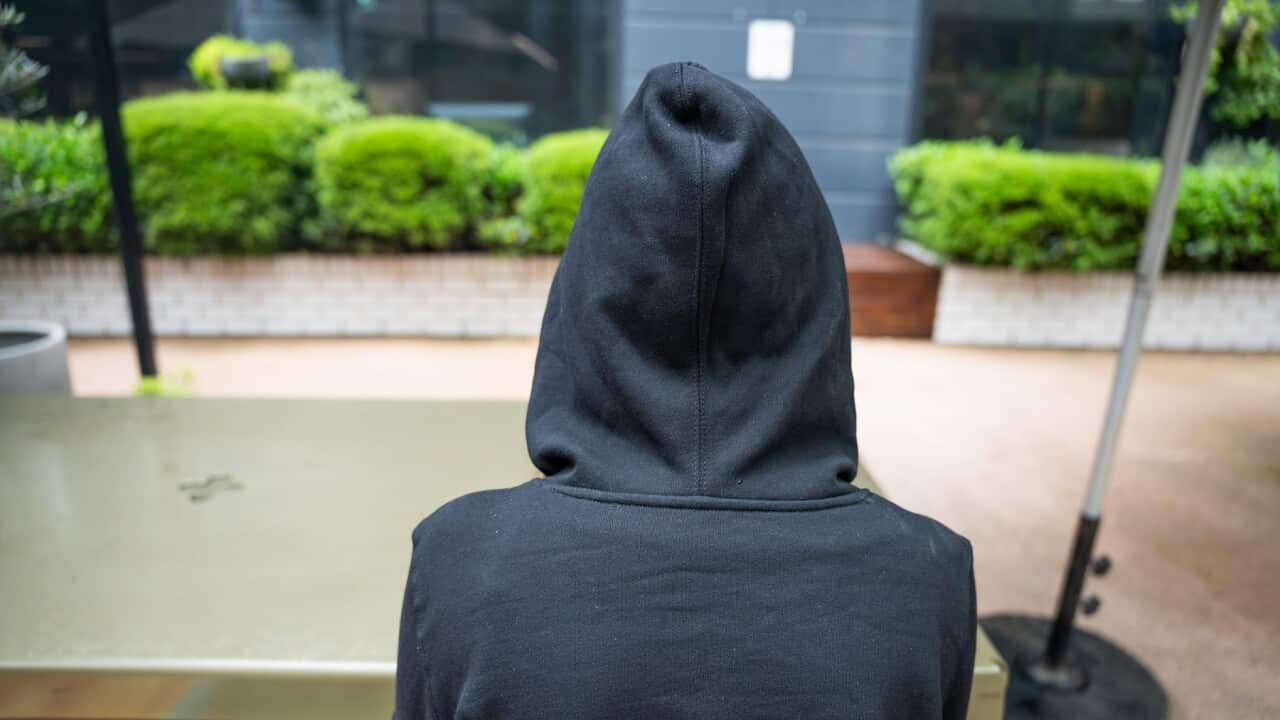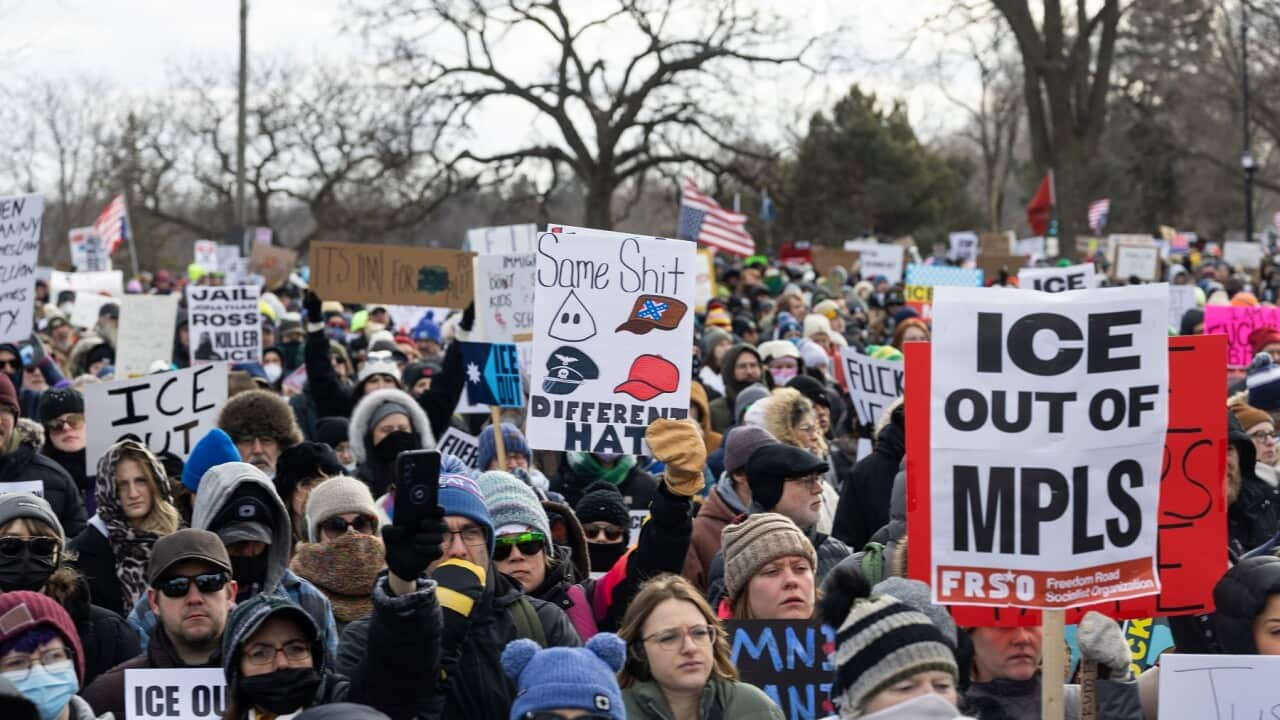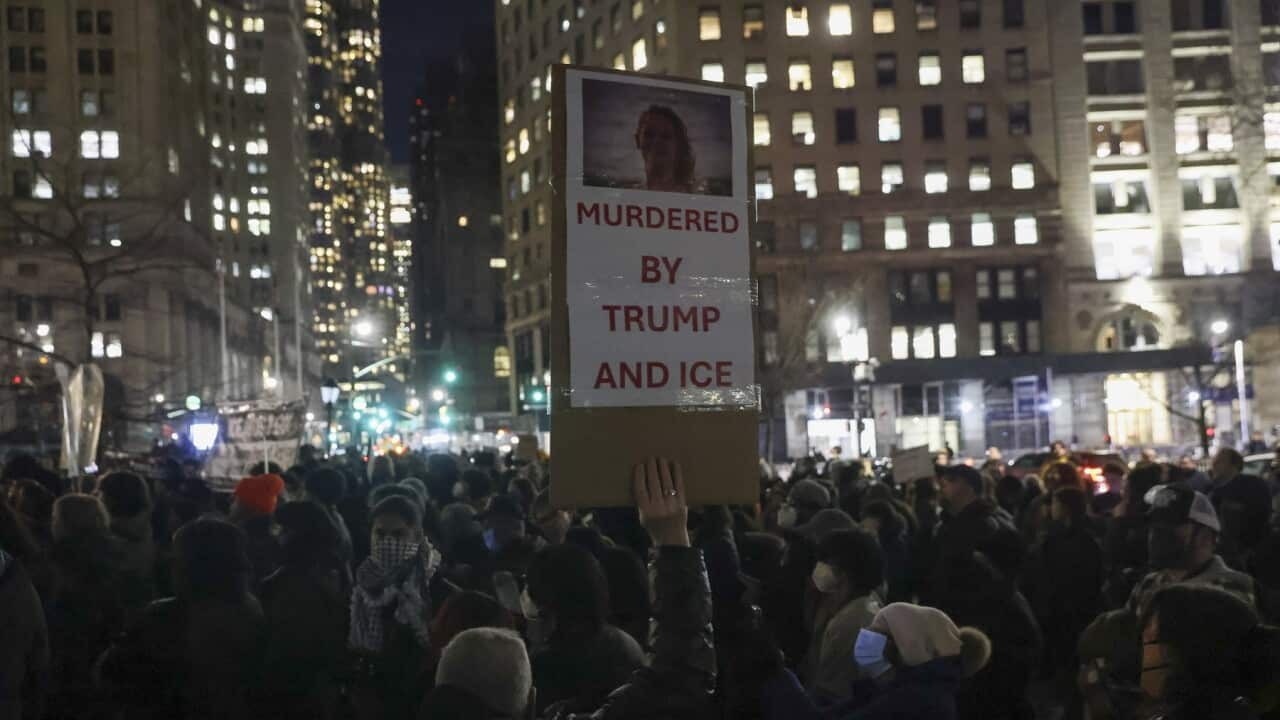Listen to Australian and world news, and follow trending topics with SBS News Podcasts.
TRANSCRIPT:
Advocates are expressing alarm at a $400 million deportation deal the Federal Government has signed with Nauru - including human rights lawyer Alison Battisson, the Director Principle and Founder of Human Rights for All.
"The MOU and the deal that was announced with Nauru on Friday should be a red flag for anyone in Australia who is concerned about our constitutional separation of powers and about the overstep of the executive into the judiciary. Should also be concerned about the secrecy in which this was announced - Friday afternoon, no press release, et cetera."
Home Affairs minister Tony Burke issued a brief statement on Friday, saying the agreement would "allow the continued management of the NZYQ cohort".
That's a group of around 280 people, including refugees and stateless persons, who were released from long-term immigration detention in 2023 as a result of a High Court judgement.
The court ruled they couldn't be held indefinitely, when there was no real prospect of them being legally deported in the foreseeable future.
Speaking to the ABC on Sunday, Shadow Attorney General Julian Leeser outlined his view of their situation.
"These people have no right to remain in Australia. They have exhausted all their avenues of appeal. They can no longer be detained indefinitely as a result of the High Court's decision, and so they can't be repatriated to their country of origin, and so they can be repatriated to a third country, and I think it's important that they are repatriated to a third country."
Special legislation was passed last year to enable this kind of arrangement, which will cost $70 million annually after the initial $408 million payment.
Associate Director at the Human Rights Law Centre Laura John explains.
"In the final sitting weeks of the Parliament last year, a suite of legislation was passed, including powers to give the Albanese government the ability to enter into arrangements with third countries to deport people who are living in Australia, who the Albanese government simply doesn't like. So those powers were given to the Albanese government last year."
Now the government has introduced another tranche of legislation.
"What they've now done in the legislation that was introduced last week - that has not yet passed and we would say should not pass - is to take away people's right to procedural fairness and natural justice. So what that means is that people who might be subject to deportation to Nauru won't have a fair chance to explain whether they fear persecution in Nauru, whether they fear that they won't be able to access medical care if they are removed to Nauru, and whether being sent to Nauru would separate them from their families."
The NZYQ cohort has been politically contentious since the members were released into the community in 2023 - largely because some have had criminal convictions recorded against them, including for serious crimes such as murder and rape.
More court challenges have also followed, with the High Court also striking down curfew and ankle bracelet conditions imposed by the government after the cohort was released into the community.
Discussion of the group has often focused on criminal findings against some of them, but Allison Battisson says this is a disingenuous misrepresentation.
"Yes and that rhetoric just isn't correct. They do have visas to be in Australia and the vast majority are on bridging visa Rs, which are given to people who might have character concerns but not necessarily criminal records, and certainly there is a large number of people within that cohort who have very minor criminal records, including as children, and who have been in the community and not offended for a decade or more."
Advocates, experts and some political figures are also concerned that the legislation linked with this deportation deal could be applied more broadly.
Senator David Shoebridge is the Greens' immigration spokesperson.
"We know what the government's rhetoric is but they're not telling the truth. These laws apply to up to 100,000 people on bridging visas and without protection in this country, it is not limited to just the NZYQ cohort."
Laura John agrees.
"Well, the Albanese government would have us believe that these series of laws, this secret deportation deal, is limited only to people in the so-called NZYQ cohort, who are in fact people who have been punished over and over again by the Albanese government, starting first with their unlawful indefinite detention. But the way the laws have been cast that the Albanese government passed last year is actually much broader and could affect a much larger group of people who may become subject to deportation."
David Shoebridge accuses the government of undermining multiculturalism with its approach.
"On the same week that we are seeing far-right rallies attacking multiculturalism on the streets, we have the Labor party introducing laws in parliament to strip away the rights of natural justice and entering into yet another dehumanising deal with Nauru playing into that same rhetoric of dehumanising people seeking asylum and attacking multiculturalism. But we need to have a government that leads with dignity and respect, and this government is failing on both those measures."
Environment Minister Murray Watt has defended the deal, adding details beyond Tony Burke's statement in an interview with Sky News.
He says the government now has the opportunity to remove "numbers in the hundreds, of the NZYQ cohort".
"We need to remember that these are people who have no visa right to be in Australia, and any functioning migration system has a principle, which is that if you don't have a right to be in a country, then you can expect to be removed. This cohort have already had access to judicial review, to merits review, to ministerial intervention, and really now that we have reached this arrangement with Nauru, it does allow for the removal of people who have no right to be in Australia."
He says the government plans to gradually scale up the number of people deported, but didn't give exact figures for the total number of people who would be affected.
Debate on the most recent piece of legislation linked to the deal with Nauru is expected to continue soon.













